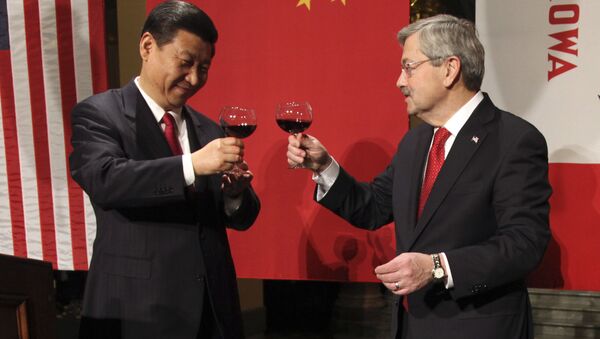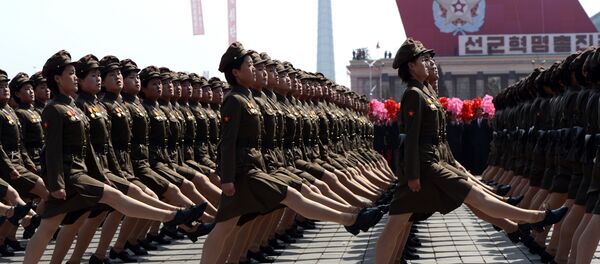According to an analyst from the Russian Academy of Sciences, Alexander Salitsky, by appointing Branstad, the US president has made a “strong move in the game with China.”
“This is a good achievement of American diplomacy. It is starting to treat China, perhaps, because of its practicality, very seriously. Such small gestures in a matter of speaking are quite Chinese in their spirit,” the analyst told Sputnik China.
He further said that against the backdrop of the “loud protectionism” that the current US administration holds toward China, such an appointment is capable of defusing the general situation in the bilateral relations of the two countries.
“By evaluating this appointment, we can say that Donald Trump is able to conduct business with China and although Terry Branstad is not a Sinologist, he is at least a figure of goodwill and that is also quite important for diplomatic success,” the analyst said.
Looking back at the bromance of the two politicians, the Governor of Iowa met the Chinese leader back in 1985, when Xi Jinping, head of the agricultural delegation of Hebei province, arrived in Iowa in order to adopt the advanced management experience of the state authorities.
In February 2012, the then Vice President of China, Xi Jinping, once again paid a visit to the small city of Muscatine in the state of Iowa.
Regarding that meeting with Xi Jinping, Terry Branstad, who was still the governor of Iowa, was reported as saying, “Xi Jinping told me that he is very grateful for the friendliness and hospitality shown to his entire delegation during his visit to Iowa.” “According to my observations, Xi Jinping is a very sociable person. I think he easily finds a common language with people.”
Later on, in 2013, two days after Xi Jinping was elected as president, Terry Branstad, then re-elected to the post of state governor for the fifth time, expressed confidence that Xi Jinping's coming to power would give an opportunity to promote relations between the US and China.
Branstad still believes that the US should do everything to make Beijing an ally of Washington.
He has said that he will work on “presenting American values to the Chinese leadership and to the Chinese people.” In particular, this concerns “respect for human rights, open and free markets and freedom of the media.”
Branstad also said that he adheres to the “One China” policy but will work to develop relations with Taiwan as well.
Political analyst and director of the Center for Political Information, Alexei Mukhin, however, believes that the new ambassador will have to make significant efforts if he wants to attempt to break the existing stereotypes in the bilateral relations of the two countries.
In an interview with Sputnik, Mukhin said, “The appointment of Branstad emphasizes the desire and readiness of the US for a much closer relationship with China. But this does not cancel later trade disputes, does not reduce the severity of competition between China and the US in the European and Pacific directions.”
“The United States has consistently defended its efforts for the role of the dominant state, which is ready to set the rules for world trade,” Mukhin added.
Although the role of the new US ambassador to China is vital for the future of the bilateral relations of the two countries, it, however, still remains unclear to what extent the old budding romance between Branstad and Jinping will help resolve the recent differences between the two powers.




